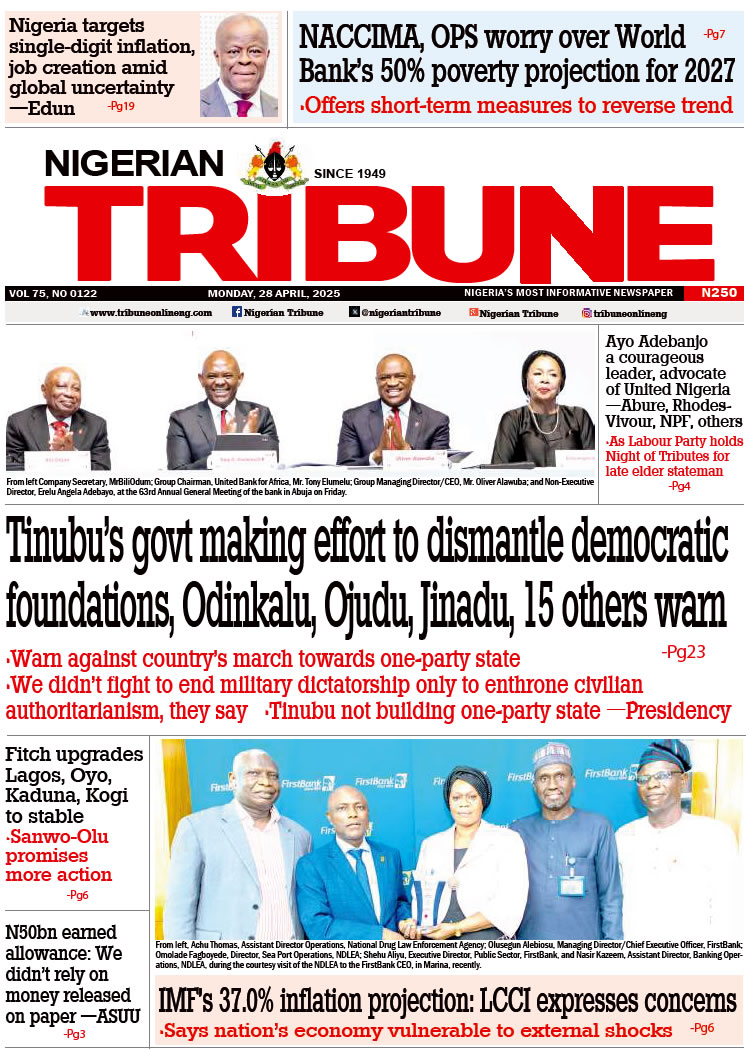The writer avers that “if conscious music heavily draws themes from prevailing situations in the society, then the definition of the unconscious would be the Nigerian secular music today, which largely portrays a fetish obsession for quick money, untrammeled sexual lifestyle and hedonism…”.
The snippet speaks to the shame of the present day music sector. As a matter of fact, beyond plain immorality, today’s music normalize and glamorise the use of drugs in a way that inculcate into the impressionable minds of teens and youths that it is okay to use drugs and alcohol negatively notwithstanding the numerous dangers associated with such indulgence.
Of course, it could be said that the music of the 90s adhered to a ubiquitous admiration for recreational marijuana, but hiphop music from 2000s coupled with their uncouth videos along the way, feel like a barefaced campaign for drug and alcohol— a phenomenon street artistes like Olamide, Eriga and the likes arguably spearheaded.
It would seem that today’s artistes and rappers have overtime embraced a profuse list of narcotics, many of which are heavily regulated prescription medications like tramadol, codeine, percocet, rophynol amongst others.
PulseNg once signposted this troubling and menacing linkage when it wrote in a riveting piece: “Drug use and Nigerian music are linked together, with each depending on the other in a supply-and-demand relationship.”
It further contended that one in three popular songs in Nigeria contains explicit references to drug or alcohol use.
In which case, many teenagers and young adults in Nigeria are likely spurred into substance abuse because they see their musician super stars regale their audience about how drugs give them inspiration.
The young and adolescent fans see them (the musicians) openly smoking and drinking in their musical video and as fans, they adore these guys/gals to the point they want to imitate them to know how it feels.
After all, the people singing about drugs use in the videos and on the radio look rich, happy, and make it seem so cool to ‘puff that molly’.
The implication of the above logic is that there is really much to worry about the sustaining linkage between our gadfly musicians and the propensity toward drug usage and abuse.
The Nigerian secular music today through its uncouth lyrics and visual endorsements of drug use has presented us with a heightened sense of worry in addition to the existing maladies in the country which themselves cannot be totally divorced from the immoral tone of our music renditions.
To be sure, we necessarily now have to worry about the towering spate of drug induced crimes—rape, burglary and homicide even as we continue to do about objectification, teenage pregnancies and STDs. Definitely, we need to worry about too much television in our various homes.
And evidently we have and continue to worry about the perpetual deterioration of morals in our society – we have drastically moved from being proud of having a girlfriend and wife /boyfriend and husband, to not wanting any attachments except for the occasional “hook-up” or the ‘no string attached mantra’ down to the trend of baby mamas/daddies!
Yet, it must be stated and broadly acknowledged that these vices and anomalies have much to do with the songs that are the most popular today as music is well-known to connect deeply with people and to influence identity development; the link between the morally bankrupt music trend and the growing resort to improper behavior by especially the youth in our society is too serious to be ignored.
Whether our young generation who ignorantly see these songs as the solution and not the problem want to admit it or not, being constantly bombarded with negative messages has an impact on their day-to-day living and decision making.
The choice of language and rhythm has been shown time and again in studies to make listeners more aggressive and by implication ease them into casual violence, aided and abetted by lyrics and visuals which subliminally say it’s okay to smoke weed and get high, it’s okay to be violent, it’s okay to be misogynistic, it’s okay to be strung out, it’s okay to grab a woman’s body without her consent and so on.
To be sure, songs about drugs and excess alcohol are nothing new, and have always been a part of the Nigerian music and even music in every part of the world.
But we have a new situation on our hands now which should compel grand attention to the growing negative import of popular immoral music as we now have children and adolescents with regular access to music out of the earshot of their parents and guardians.
A recent study, for instance, reveals that, nearly 9 out of 10 adolescents and teens have an MP3 player or a compact disc player in their bedroom and listen to an average of 2.5 hours of music per day— a statistic that is way more than the previous generation.
On top of this is the social media which makes music and songs even more accessible and abundant. The reality is that the young do not just now have unusual access to all kinds of music, but are also empowered more than the earlier generations to produce the music and songs themselves. We, therefore, have a case of virtually unlimited access and the ubiquity of production of music and songs in today’s world.
When this enormous resource is then turned into a channel for the propagation of only immoral lyrics and the celebration of drug abuse, we should be worried about the harvest of drug epidemic in the society.
The truth is that drug abuse cannot be effectively controlled in our society without recognising and addressing the important contribution of contemporary immoral music to its emergence and sustenance.
Today, more young Nigerians are deploying their boundless energies to unveiling new sources of getting high daily as inspired by their MTV superstar role models, telling us that that there would continue to be more drug induced crimes in the society with our news headlines populated and flooded with reports of such.
There is therefore an urgent and dire need to arrest and reverse the current trend through a new and different pop culture content that makes it cool to be safe, sober and drug-free.
And no one has the power to do this more than the musicians themselves and their regulatory bodies.
There ought to be on their part a conscious determination to change course and help the society with more morally appealing rhythms and lyrics in order to stem the tide of the current drug epidemic.
- Yakubu is of the Department of Mass Communication, Kogi State University, Anyigba.




